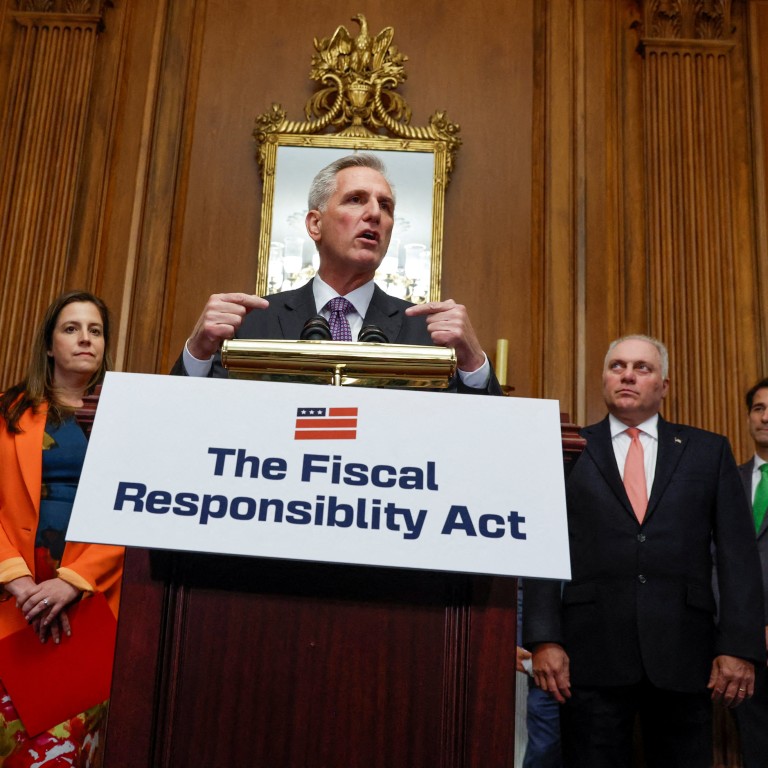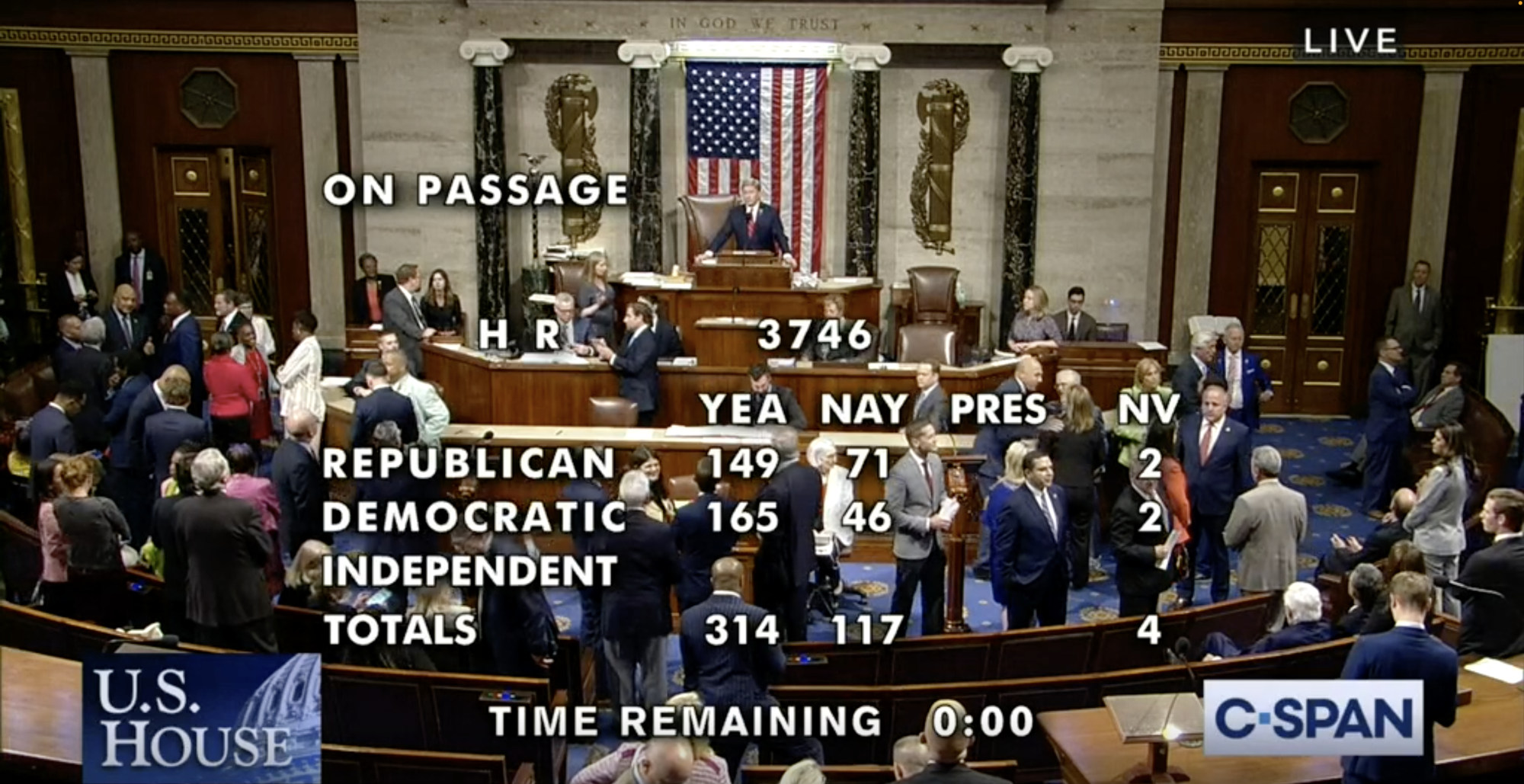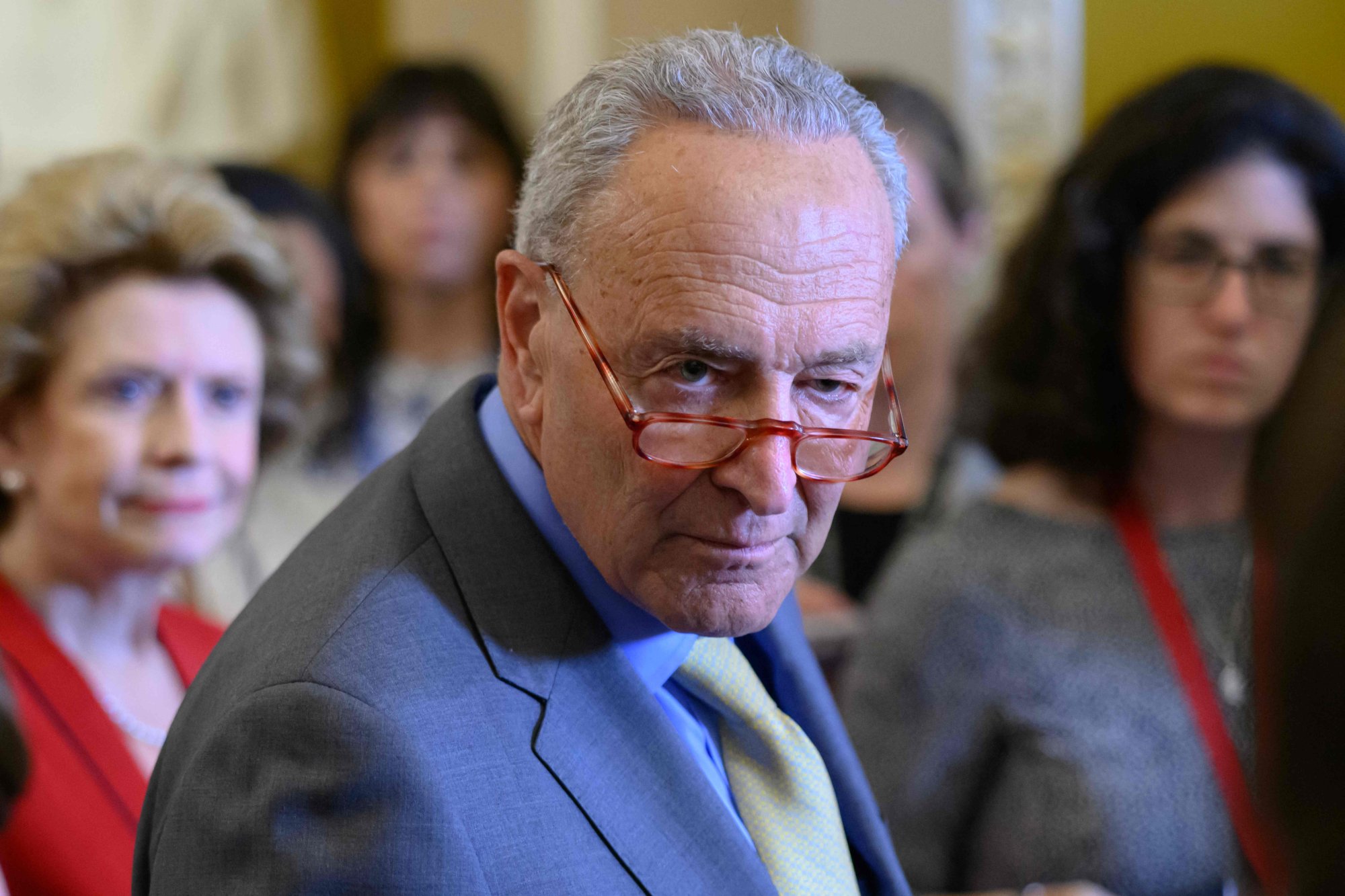
US debt ceiling deal: House passes bill over hard-right Republican opposition, Senate next to vote
- By margin of 314 to 117, agreement between Joe Biden and Kevin McCarthy wins bipartisan support, clearing path to avert unprecedented default
- Bill passes in the US House of Representatives just days before the June 5 ‘X date’, advancing to the Senate for another vote
The US House of Representatives on Wednesday passed a bill to suspend the country’s debt ceiling and set federal spending limits, putting it on course to avert a looming sovereign default that was days away.
House Speaker Kevin McCarthy managed to tamp down strident opposition to the bill from hard-right Republicans who were unable to prevent it from coming to the chamber’s floor, where it passed 314 to 117, with 71 members of the speaker’s party voting against it.
“Tonight, we all made history because this is the biggest cut and savings this Congress has ever voted for,” McCarthy told reporters, thanking fellow Republicans for providing the required support.
US President Joe Biden welcomed the bill’s passage and urged the Senate to “pass it as quickly as possible” so that he can sign it into law.
“This agreement is good news for the American people and the American economy,” he said in a statement released by the White House.
Security spending – including defence – would be capped at US$886 billion, preserving a 3.3 per cent increase in the defence budget that Biden requested, while other spending would be capped at US$704 billion. The two allocations would rise to US$895 billion and US$711 billion respectively in 2025.

Some Republicans have resisted the agreement by pointing out that the increase in defence spending is below the current inflation rate of about 5 per cent, meaning it represents a cut in real dollar terms.
The deal leaves untouched increases needed to fund mandatory programmes like Medicare and Social Security, which most voters overwhelmingly support.
“Tonight’s successful House vote – the most difficult hurdle this week – moves a debt ceiling deal to 90 per cent, default to 10 per cent,” said Terry Haines, founder of Washington consultancy Pangaea Policy.
“A couple of Senators may use delaying tactics to register performative displeasure with deal specifics,” he said. “But the Senate almost certainly approves the bill Friday or Saturday.”
“Tonight’s House vote was a much larger ‘yes’ vote than first anticipated, largely because the real test turned out to be the procedural ‘rules’ vote earlier in the day,” Haines added. “Once the rule vote prevailed, purists on both sides threw in the towel, choosing to emphasise their rejection of default over opposition to the spending deal.”
Estimates vary as to how much the bill will lower spending, with the White House saying about US$1 trillion and Republicans asserting that the cut would be twice that amount. The non-partisan Congressional Budget Office on Tuesday estimated the bill would reduce deficits by US$1.5 trillion over 10 years.
Risks still lurk for China despite prospect of US debt deal, analysts say
Speaking ahead of the vote on Wednesday, Senate Majority Leader Chuck Schumer warned that little time remained.

“I cannot stress enough that we have no margin for error,” The New York Times quoted Schumer as saying. “Either we proceed quickly and send this bipartisan agreement to the president’s desk or the federal government will default for the first time ever.”
Senate Minority Leader Mitch McConnell joined 22 other Republicans in the chamber in signing a letter sent to Schumer earlier in May, pledging to resist “any bill that raises the debt ceiling without substantive spending and budget reforms”.

